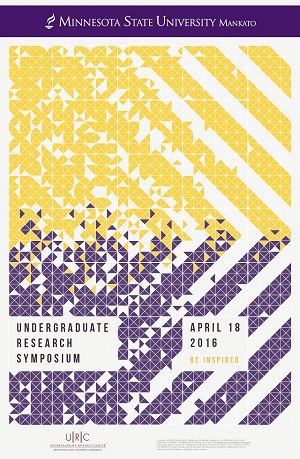Effective Paraprofessional Implementation of Reading Fluency Intervention
Location
CSU Ballroom
Start Date
18-4-2016 2:00 PM
End Date
18-4-2016 3:30 PM
Student's Major
Psychology
Student's College
Social and Behavioral Sciences
Mentor's Name
Shawna Petersen-Brown
Mentor's Department
Psychology
Mentor's College
Social and Behavioral Sciences
Second Mentor's Name
Carlos Panahon
Second Mentor's Department
Psychology
Second Mentor's College
Social and Behavioral Sciences
Third Mentor's Name
Cassandra Schreiber
Third Mentor's Deparment
Psychology
Third Mentor's College
Social and Behavioral Sciences
Description
Basic skills such as reading and writing lay the foundation for future educational success. According to the National Reading Panel (NRP), reading fluency (reading with speed, accuracy, and expression) is an essential skill for developing reading comprehension (NRP, 2000). However, students do not attain reading fluency at equal rates. Therefore, paraprofessionals in schools can provide individualized extra practice for struggling students to improve reading fluency. The purpose of our study is to examine the effectiveness of repeated reading (RR) when implemented by a paraprofessional with struggling readers, as compared to a self-monitored RR intervention. Our study will use a multiple baseline design in which two elementary students identified as struggling readers will begin in the self- monitored RR condition and transition in a staggered fashion to RR implemented by a paraprofessional. The self-monitored and paraprofessional-implemented RR conditions will each include repeated practice reads of the same text. The self-monitored condition will include recording and listening to one’s own performance, while the paraprofessional- implemented condition will include a skilled model, error correction, and graphing. Sessions in each condition will require approximately 15 min and will be implemented up to 4 times per week. We anticipate students’ reading fluency will increase more quickly when RR is implemented by a paraprofessional as a result of the modeling and additional feedback provided.
Effective Paraprofessional Implementation of Reading Fluency Intervention
CSU Ballroom
Basic skills such as reading and writing lay the foundation for future educational success. According to the National Reading Panel (NRP), reading fluency (reading with speed, accuracy, and expression) is an essential skill for developing reading comprehension (NRP, 2000). However, students do not attain reading fluency at equal rates. Therefore, paraprofessionals in schools can provide individualized extra practice for struggling students to improve reading fluency. The purpose of our study is to examine the effectiveness of repeated reading (RR) when implemented by a paraprofessional with struggling readers, as compared to a self-monitored RR intervention. Our study will use a multiple baseline design in which two elementary students identified as struggling readers will begin in the self- monitored RR condition and transition in a staggered fashion to RR implemented by a paraprofessional. The self-monitored and paraprofessional-implemented RR conditions will each include repeated practice reads of the same text. The self-monitored condition will include recording and listening to one’s own performance, while the paraprofessional- implemented condition will include a skilled model, error correction, and graphing. Sessions in each condition will require approximately 15 min and will be implemented up to 4 times per week. We anticipate students’ reading fluency will increase more quickly when RR is implemented by a paraprofessional as a result of the modeling and additional feedback provided.
Recommended Citation
Klement, Krystal. "Effective Paraprofessional Implementation of Reading Fluency Intervention." Undergraduate Research Symposium, Mankato, MN, April 18, 2016.
https://cornerstone.lib.mnsu.edu/urs/2016/poster-session-B/33




